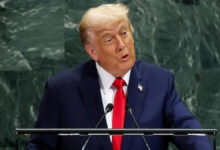Global Recognition of Palestine: Which Nations Support and Which Resist?
Geopolitical Shifts Highlight the Ongoing Debate Over Palestinian Statehood

The issue of Palestinian statehood has returned to the international spotlight amid ongoing regional tensions. In recent months, several countries have formally acknowledged Palestine as a sovereign entity, signaling subtle but important shifts in global diplomacy. Nations such as Britain, Australia, Canada, and Portugal have extended recognition, while others in Europe are reportedly preparing to follow suit at forthcoming United Nations discussions.
Since its unilateral declaration in 1988, Palestine has gradually gained recognition from more than 145 of the 193 UN member states, particularly across Asia, Africa, and Latin America. However, about 45 countries-including Israel, the United States, and several of their close allies-continue to withhold recognition, citing concerns over security and political stability.
Recognition carries both symbolic and legal significance. While it does not automatically resolve longstanding conflicts, it strengthens Palestine’s presence in international forums and may influence peace negotiations. Experts emphasize that acknowledgment of statehood is as much about diplomatic leverage as it is about legal recognition.
Within Europe, the divide is particularly evident. Sweden, Norway, Spain, Ireland, and Slovenia have recognized Palestine, whereas Italy and Germany maintain a non-recognition policy. These contrasting stances underline the complex nature of global diplomacy in the region.
As international discussions continue, the debate over Palestinian recognition remains a critical aspect of efforts to achieve a viable two-state solution and lasting peace in the Middle East.







Facebook Comments